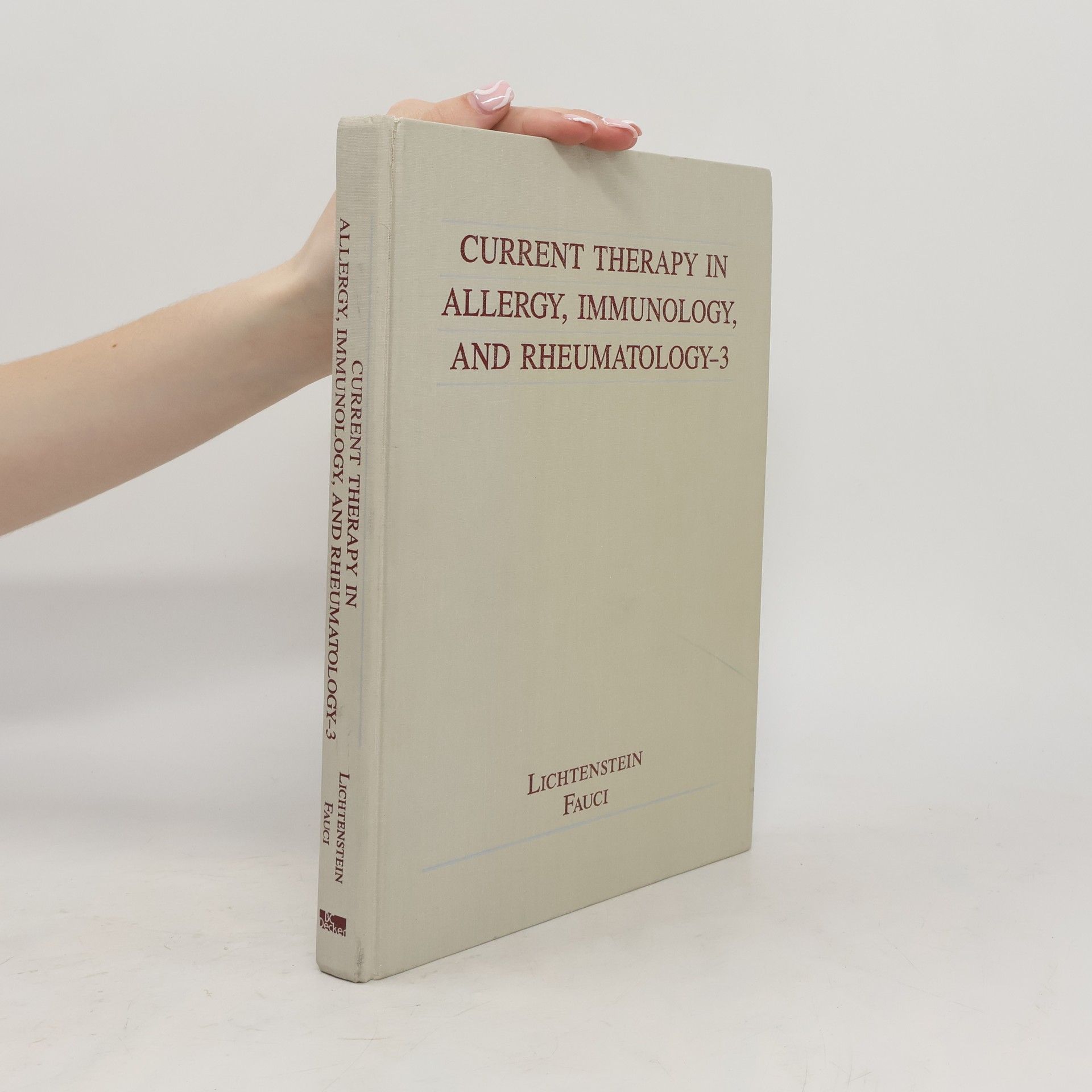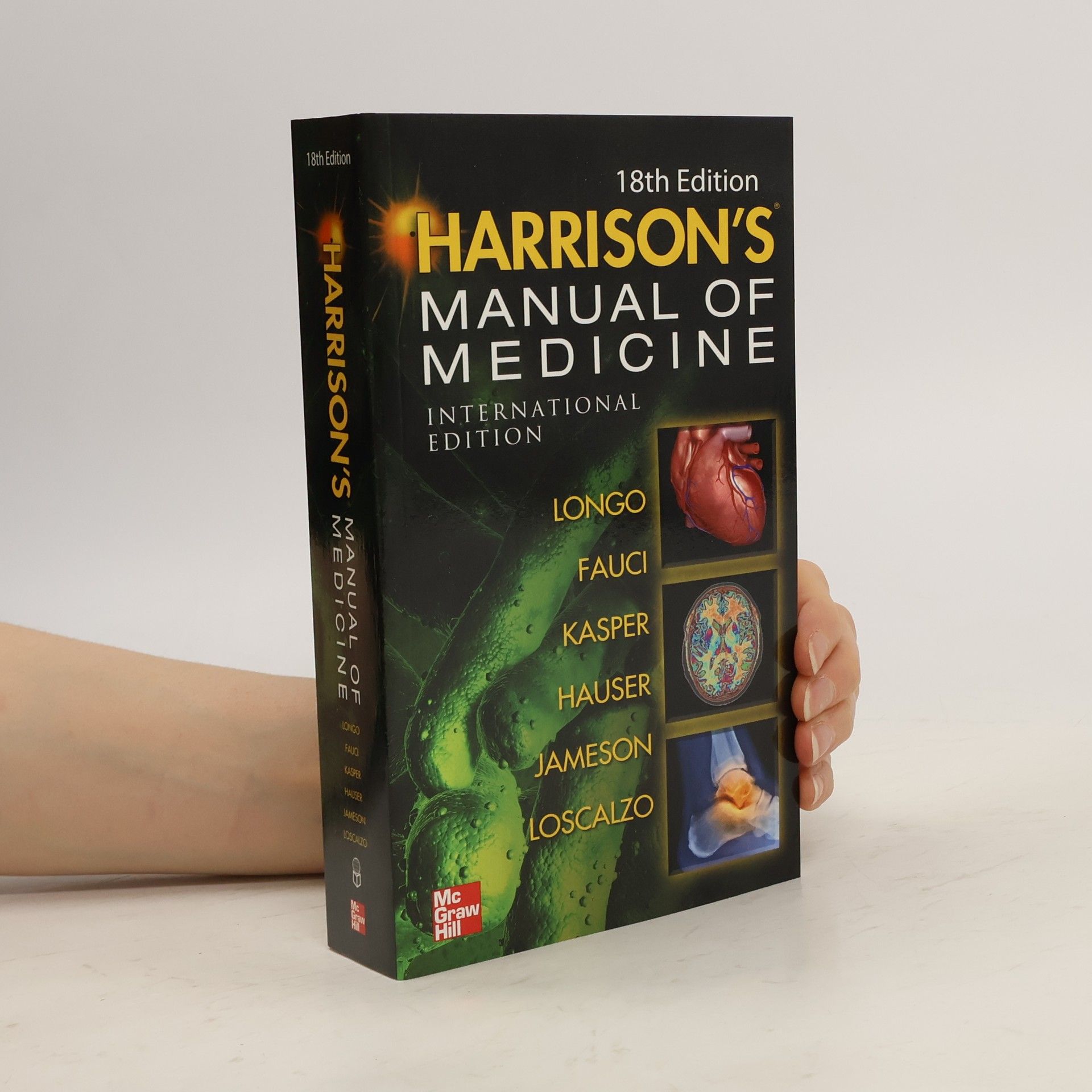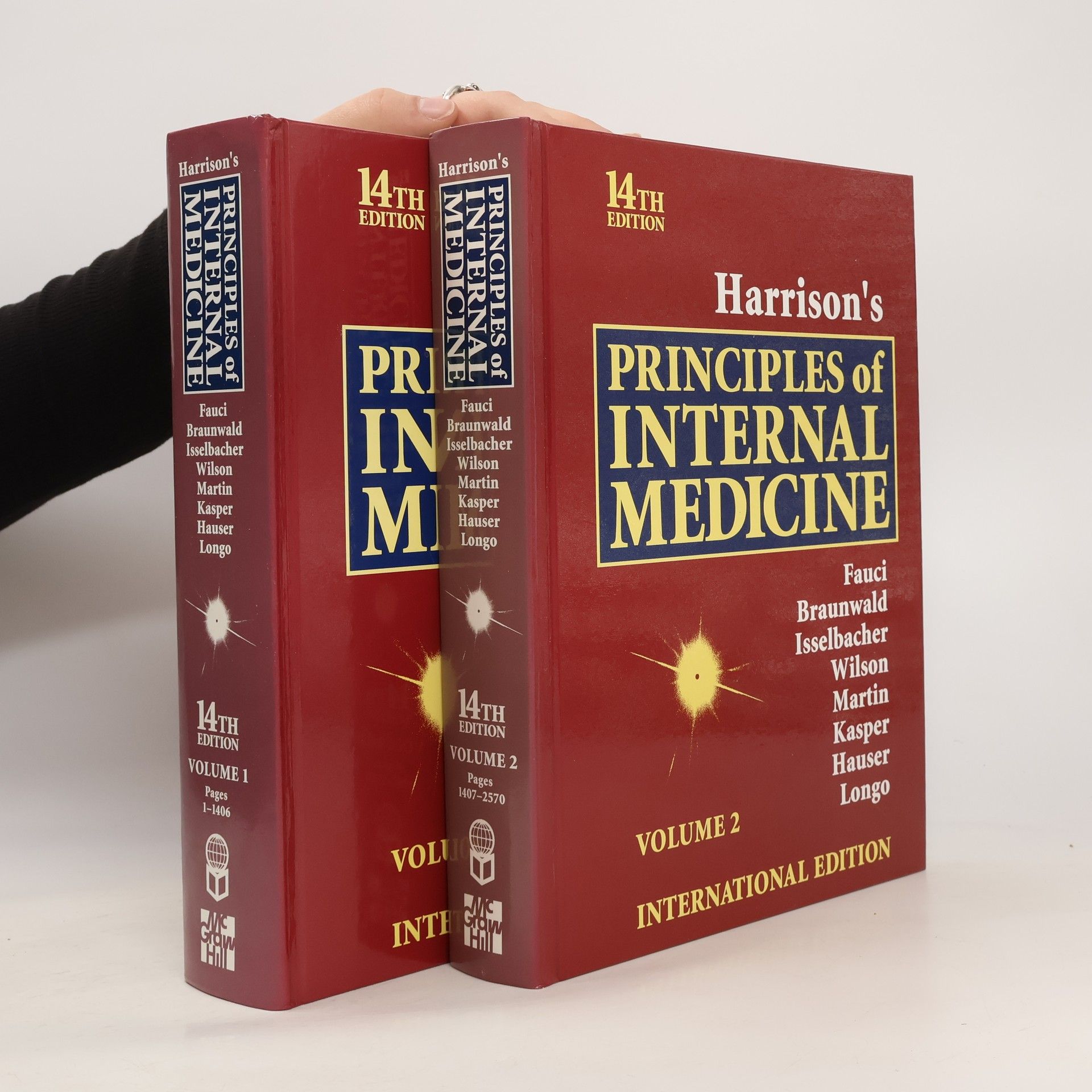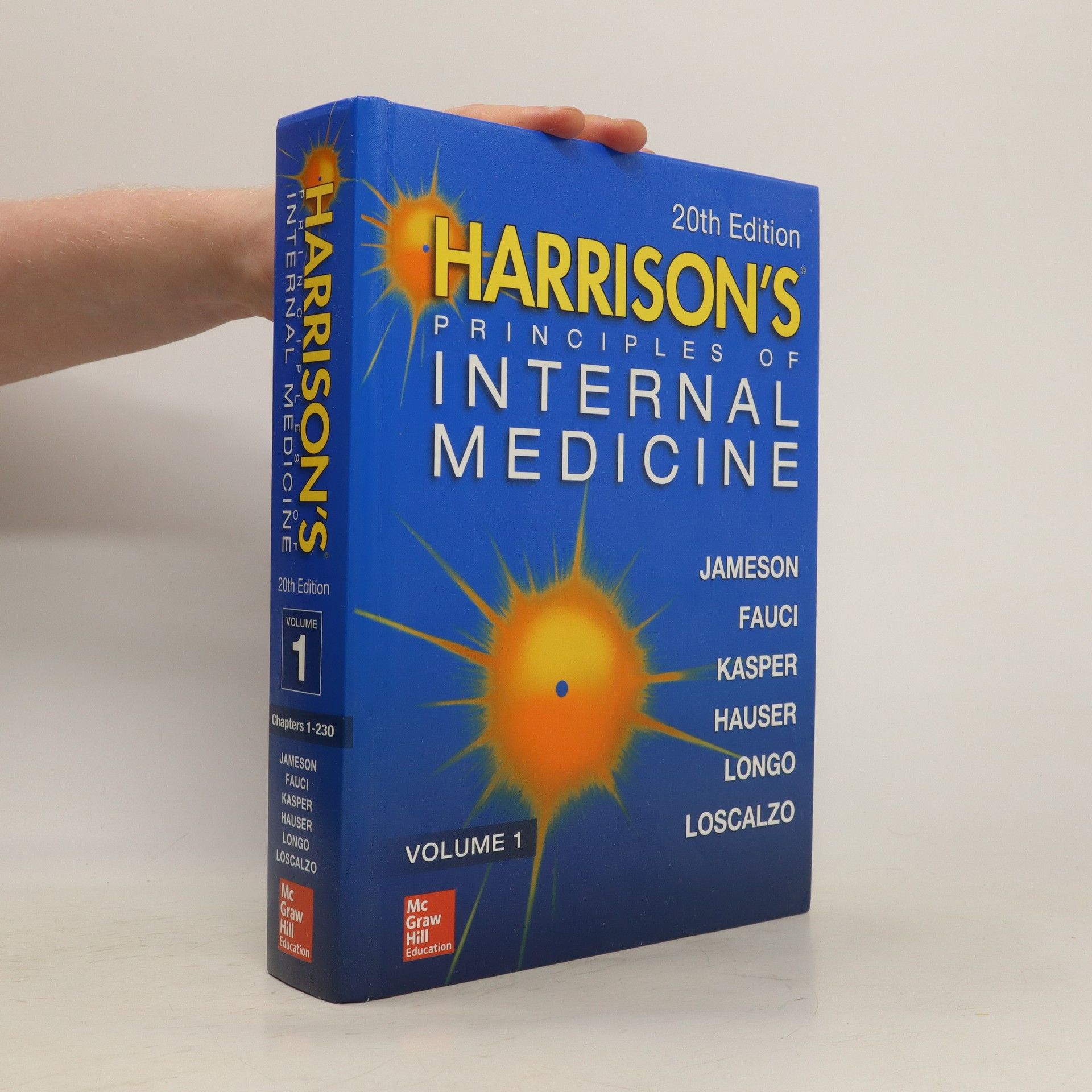Exploring the intersection of clinical practice and reasoning, this book delves into the thought processes that underpin effective decision-making in healthcare. It emphasizes the importance of critical thinking, evidence-based approaches, and the integration of patient values in clinical scenarios. Through various case studies and practical examples, the text aims to enhance the reader's understanding of how to navigate complex medical situations, fostering a more holistic and empathetic approach to patient care.
Anthony Fauci Boeken






The ultimate on-the-spot resource, this volume features authoritative yet concise guidelines on pathophysiology, clinical signs, diagnosis and management of all internal medicine disorders. Expanded treatment is given to algorithms and diagnostic decision trees. Two-volume set. 1,500 illustrations, 200 in full color.
Harrison's Rheumatology
- 350bladzijden
- 13 uur lezen
Rheumatology, a Doody's Core Title for 2011, features chapters from Harrison's Principles of Internal Medicine, 17e, providing the latest insights in the field with the reliability of Harrison's. This compact clinical companion is perfect for classroom use, ward visits, or exam preparation. It includes comprehensive coverage of essential immunology and rheumatology topics, such as the immune system's role in health and disease, immune-mediated injury disorders, and joint-related conditions. Each disease-oriented topic integrates pathophysiology with clinical management. An appendix lists important laboratory values, and the book offers over 60 high-yield questions and answers from Harrison's Self-Assessment and Board Review, 17e. The content has been updated since the last edition, with 23 chapters authored by leading physicians who have significantly contributed to their fields. The Harrison's specialty series is crafted by a distinguished team, including Anthony S. Fauci, MD, Eugene Braunwald, MD, and others, ensuring a high standard of expertise and knowledge.
"Similar to the prior seven editions, this new edition of the Manual, drawn from the 18th edition of HPIM, presents the key features of the diagnosis, clinical manifestations, and treatment of the major diseases that are likely to be encountered on a medical service"--Proporcionado por la editorial.
Compiled from hours of interviews drawn from the eponymous National Geographic documentary, this inspiring book from world-renowned infectious disease specialist Anthony Fauci shares the lessons that have shaped the celebrated doctor's life philosophy, offering an intimate view of one of the world's greatest medical minds as well as universal advice to live by. Before becoming the face of the White House Coronavirus Task Force and America's most trusted doctor, Dr. Anthony Fauci had already devoted three decades to public service. Those looking to live a more compassionate and purposeful life will find inspiration in his unique perspective on leadership, expecting the unexpected, and finding joy in difficult times. With more than three decades spent combating some of the most dangerous diseases to strike humankind-- AIDS, Ebola, COVID-19--Dr. Fauci has worked in daunting professional conditions and shouldered great responsibility. The earnest reflections in these pages offer a universal message on how to lead in times of crisis and find resilience in the face of disappointments and obstacles. Filled with inspiring words of wisdom, this profound book will offer readers a concrete path to a bright and hopeful future. Editor's Note: Dr. Anthony Fauci had no creative control over this book or the film on which it is based. He was not paid for his participation, nor does he have any financial interest in the film or book release.
New chapters are included on metabisulfite sensitivity, congenital humoral and cellular immunodeficiency states, hyper Ig E syndrome, dermatitis herpetiformis, progressive systemic sclerosis, autoallergic diseases of the external eye, and Tandakayasu's arteritis.
With emphasis on therapy, this updated two-volume text aims to define the practice of medicine into the next millennium. It examines the biologic and pathophysiologic origins of disease, and charts a course of diagnosis and management. New chapters are devoted to oncology and medical ethics.
Focusing on his impactful career, the memoir chronicles Anthony Fauci's journey from his childhood in Brooklyn to becoming a pivotal figure in public health. It highlights his leadership during major health crises, including HIV/AIDS, Ebola, SARS, and COVID-19, showcasing his dedication to patient care and public service. Fauci's experiences navigating the complexities of Washington politics and advising seven presidents on critical health issues underscore his legacy as a trusted and revered figure in American medicine.
The memoir by the doctor who became a beacon of hope for millions through the COVID pandemic, and whose six-decade career in high-level public service put him in the room with seven presidentsAnthony Fauci is arguably the most famous – and most revered – doctor in the world today. His role guiding America sanely and calmly through Covid (and through the torrents of Trump) earned him the trust of millions during one of the most terrifying periods in modern American history, but this was only the most recent of the global epidemics in which Dr. Fauci played a major role. His crucial role in identifying HIV and bringing AIDS into sympathetic public view and his leadership in navigating the Ebola, SARS, West Nile, and anthrax crises make him truly an American hero. His memoir reaches back to his boyhood in Brooklyn, New York, and carries through decades of caring for critically ill patients, navigating the whirlpools of Washington politics, and behind-the-scenes advising and negotiating with seven presidents on key issues from global AIDS relief to infectious disease preparedness at home. On Call will be an inspiration for readers who admire and are grateful to him and for those who want to emulate him in public service. He is the embodiment of “speaking truth to power,” with dignity and results.
"Harrison's is intended for learners throughout their careers. For students, Part 1, Chapter 1 begins with an overview of "The Practice of Medicine." In this introductory chapter, the editors continue the tradition of orienting clinicians to the science and the art of medicine, emphasizing the values of our profession while incorporating new advances in technology, science, and clinical care. Part 2, "Cardinal Manifestations and Presentation of Diseases" is a signature feature of Harrison's. These chapters eloquently describe how patients present with common clinical conditions, such as headache, fever, cough, palpitations, or anemia, and provide an overview of typical symptoms, physical findings, and differential diagnosis. Mastery of these topics prepares students for subsequent chapters on specific diseases they will encounter in courses on pathophysiology and in clinical clerkships"--

